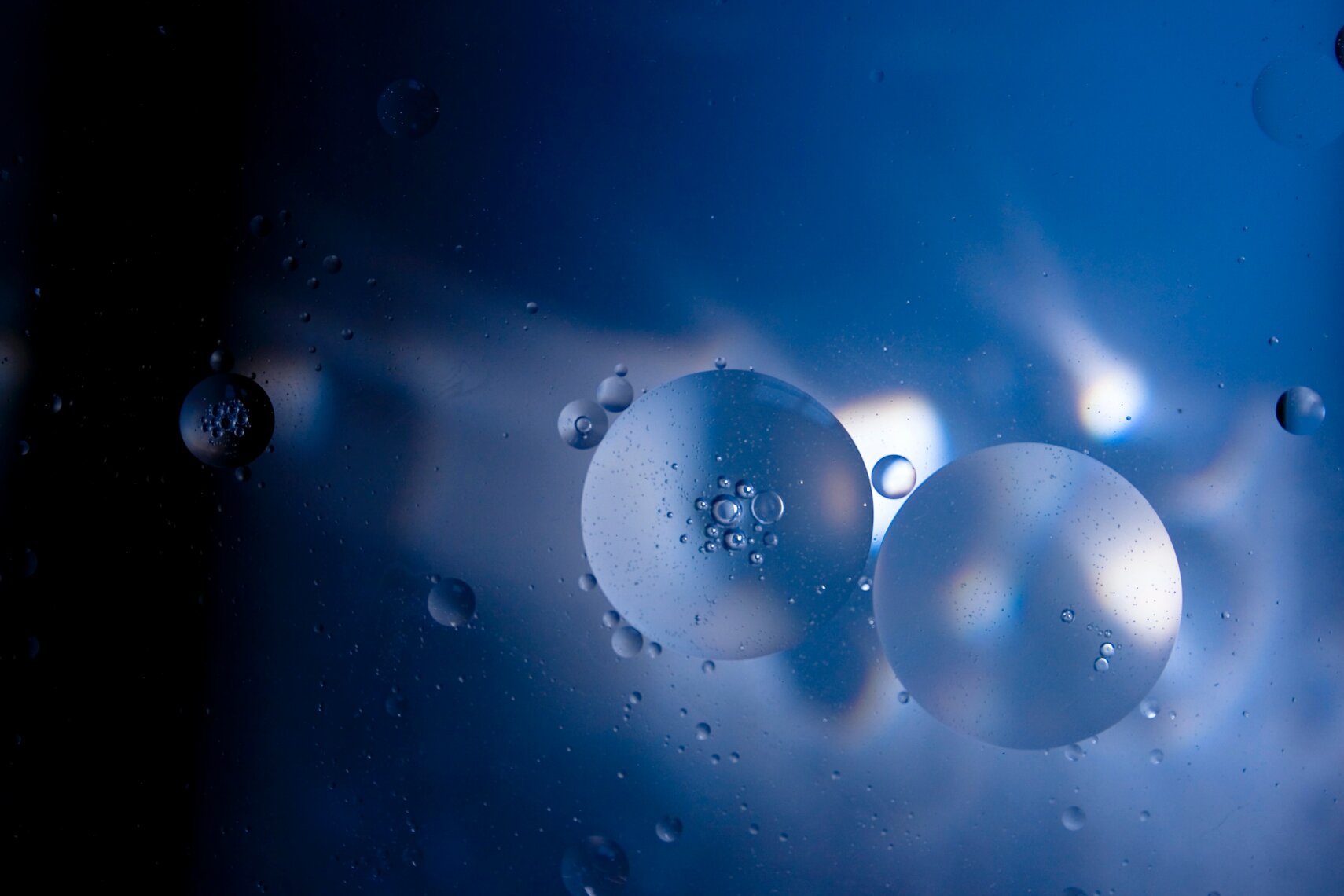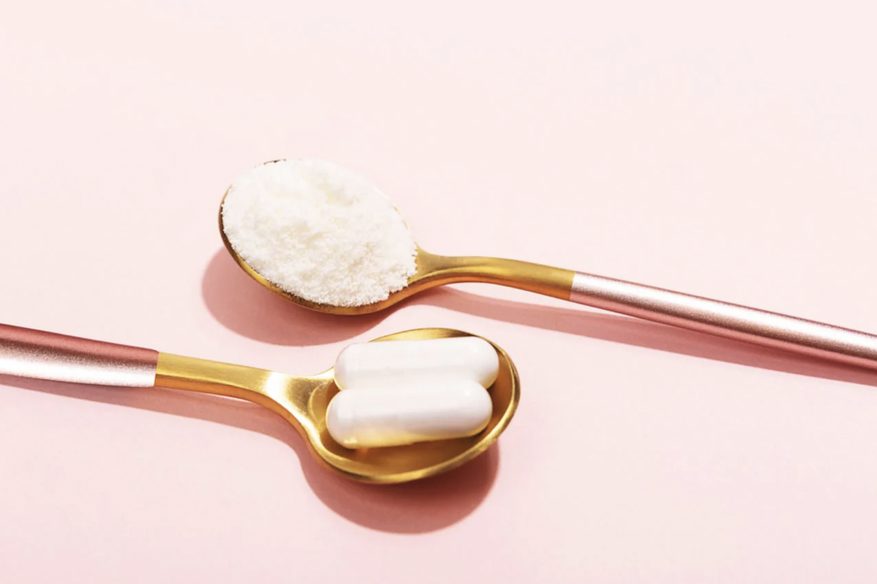 What’s the Difference Between Collagen Peptides and Hydrolyzed Collagen?
What’s the Difference Between Collagen Peptides and Hydrolyzed Collagen?
Collagen Peptides: Support Your Skin the Nutritional Way

This insightful article sheds light on the natural aging process and the environmental factors affecting skin health, while emphasizing the crucial role of collagen peptides. Learn about the various types of collagen supplements, their benefits for skin hydration, elasticity, and overall appearance, and how to seamlessly incorporate them into your daily routine for enhanced skin beauty and health.
How Collagen Peptides Support Your Skin the Nutritional Way
As we age, life becomes a chase, a secret hunt for an elixir, diet, or routine to maintain a youthful image, saving us from the constant fight from free radicals. For most of us, this is an unspoken quest that market giants cleverly capitalize on. With strategic marketing and mass production of skin care products claiming to reverse aging, the global skincare industry is estimated at $273 billion [1] by 2030.
This means you’re likely to be spoilt for choice of options when shopping online for skincare products. It can be pretty overwhelming to see a range of products boasting a “promise” of looking younger.
The truth is, you don’t need to buy the next best moisturizing cream you see on an Instagram ad or undergo a hyped surgical treatment. Often, many of these contain harsh chemicals or filler ingredients that lack sufficient evidence to support your skin health.
The real way to restore the balance from free radicals and maintain a fresh face is to keep it simple.
Take collagen peptides.
Peptides are natural and hold a variety of health benefits for your skin.
Dive in with us today as we explore everything you need to know about collagen.

What is ‘beauty from within’?
While your skin acts as a barrier to the outside world, your internal environment plays an equal role in your appearance and overall well being. Beauty goes beyond the surface level.
If you focus on having a healthy inner state, then as a byproduct, your image will show up for itself. The positive energy and effort you spend nourishing your mindset and internal health radiates outwards.
It starts with your skin.
How skin beauty is affected by the aging process
When you age [2], you undergo collagen loss, decreasing your skin hydration and elasticity. The loss of collagen fibers causes your body to fail to produce essential oils. One of the major ones that it lacks is sebum. This oil helps lubricate and protect it from friction.
Sebum also assists your sebaceous glands in transporting antioxidants to your blood vessels. When there’s a lack of sebum, your skin’s response towards heat exposure in these glands decreases significantly.
Also the number of melanocytes (cells responsible for pigmentation) decreases, providing less protection against ultraviolet radiation and causing your skin layers to break down.
Intrinsic and extrinsic environment
Alongside degenerative changes [3], the environment around you, your lifestyle, and the habits you instill can rapidly influence your skin conditions. Unstable atoms known as free radicals can cause premature aging; they’re produced from:
- Smoking
- Pollution
- Stress
- Alcohol consumption
- Diet
- Sun exposure
So, in short, the health of your skin is dependent on your age and lifestyle factors. When you’re overexposed to free radicals, alongside the natural aging process, your body is placed under oxidative stress, affecting the aging process and damaging different layers. These results visibly manifest as wrinkles, fine lines, crow’s feet, an uneven skin tone, dark spots, and sagging. Whether collagen supplements are added to your lifestyle or not you can simply improve skin health by reducing exposure to free radicals.

Collagen Peptides: Nutrition For Diverse Skin Beauty
One significant protein that decreases in your body due to aging is collagen. Collagen [4] is essential not just for your skin but for your bones, connective tissues, and hair, and it helps keep your organs functioning at peak capacity.
It’s the building block for your body and begins to decrease from 20 years old and then significantly by 1% [5] each year from 40 onwards.
So, how do we restore the balance of collagen?
While we can’t simply rely on the genetic lottery, we can replenish some of our collagen levels by taking collagen. Collagen cannot be digested in its pure form; it needs to be broken down into smaller pieces.
What are the different forms of collagen?
One of the best ways to increase your intake of collagen naturally is through food. However, if you cannot get it in your diet, then collagen supplements may help. In supplements, there tends to be three types of collagen which are:
- Hydrolyzed collagen: These sources of collagen can include is, collagen powder, collagen hydrolysate, and hydrolyzed gelatin.
- Gelatin
- Undenatured type II collagen
The hydrolyzed form of collagen [6] is thought to the best, especially peptides. The smaller pieces allow for easier ingestion. To notice the benefits, you should take around 5- 15 grams of collagen daily.
Why are collagen peptides associated with skin beauty?
Collagen helps support the strength and structure of your skin, playing an important role in the following:
- Providing hydration and elasticity
- Helping replace dead skin cells
- Encouraging the growth of new cells
- Assisting in blood clotting
- Protecting your organs
As we mentioned earlier, when exposed to free radicals from factors like pollution, smoking, alcohol, diet, the sun, and more, it affects your dermal collagen network. It hampers your body’s ability to make collagen, speeding up skin aging due to the exposure of free radicals.

How does collagen support skin beauty and hair strength?
Collagen peptides may improve your hair strength. This is because collagen encourages the production of amino acids glycine, hydroxyproline, proline, and arginine. These essential amino acids contribute to the structure of your hair, nourishing hair follicles for growth. Collagen production can also slow down your hair from graying and thinning. So oral supplementation of specific collagen can be both beneficial for skin and hair strength.
Potential health benefits of collagen for skin
There are a lot of benefits of taking collagen peptide supplements for healthy skin, which are:
Can help elasticity
When you lose collagen due to aging, your skin becomes drier and forms wrinkles on its surface.
Evidence: A meta-analysis of 11 studies [7] examined women taking 3-10 grams of collagen peptides daily over 69 days, finding significant improvement in their hydration, blood flow, elasticity, and skin firmness. This research suggests that taking collagen supplements can help slow this process down.
It’s also thought collagen encourages the production of other proteins, such as fibrillin and elastin [7], which help improve your skin’s elasticity. Though more research is required, some people believe that due to the production of these proteins, collagen can help reduce stretch marks and cellulite.
May improve skin hydration
Natural collagen binds with water molecules, helping your skin retain moisture. It also produces a molecule called hyaluronic acid that helps support skin hydration and moisture. When your skin is hydrated, it looks plumper, smoother, and more radiant on the surface.
Reduced facial lines and wrinkles
With skin elasticity and hydration being two of the health benefits of collagen, your face is likely to look tighter and smoother. It can change the formation of the structure of your skin, causing less visibility of wrinkles and lines.
Helps heal wounds
Skin wounds can be a ghastly sight, and the longer they’re open, the greater the risk of infection. Collagen protein acts as an essential building block that helps stimulate the production of immune cells [8] and fibroblasts (cells that help form connective tissues), promoting quicker healing of wounds on the surface of your skin.

Integrating Collagen Peptides into Your Diet
One of the great things about taking oral collagen peptides is that they’re versatile supplements. These supplements containing collagen come in liquid, powder, and capsule forms. They are also soluble in both hot and cold liquids.
How To Take Collagen?
For further inspiration, here are some simple examples of how to add our bovine collagen peptides to your diet:
Add collagen to coffee
A common way to take collagen peptides is by adding them to your morning cup of Joe. But, if you’re skeptical of that rich, smoky earth taste being altered, don’t worry- stick to adding unflavoured collagen peptides that don’t affect the flavor. Add 1-2 scoops of collagen powder to your cup, then pour the coffee in! Stir with a spoon or whisk to ensure there are no lumps in it.
Note: You can also do this with tea too!
Add them to a protein shake
If you’re a fitness enthusiast, collagen can support your skin and overall well-being. The truth is collagen is the most abundant protein in your body, meaning peptides can double up as a protein powder. This form of collagen can be a cost-effective substitute for protein and can be simply mixed into your post- or pre-workout shake. Just add 1-2 scoops and voila!
Put a scoop into scrambled eggs or omelette
Why not maximize your protein intake by combining two sources? Add unflavoured collagen powder to your scrambled eggs or omelet mixture, dissolving in a bowl.
Add to bone broth
Load up on your nutrition in the winter season with a hearty bone broth. The exciting thing about bone broths is they are packed with amino acids and glycosaminoglycans, meaning they’re nutrient-dense. So adding a scoop of collagen on, too, can do wonders. Similarly, many store-bought bone broths come from chicken or beef and lack the five major types of collagen, so dropping a scoop of powder can easily help your skin.
Add them to a baking mix
Another way of increasing your collagen content is by adding a scoop or two to a baking mixture. Just like drinks, collagen peptide powder can easily be dissolved into baking mixtures. So next time you plan on baking muffins, bread, cookies, cakes, brownies, pancakes, waffles or anything else- add collagen. Also, if you have children, this can be a good way to add collagen powder to their diet.
Collagen supplements
On the contrary, if you do not have the time to eat or drink peptides, then one collagen type you might want to consider is supplements. This type is great if you live a fast-paced lifestyle yet still want to prioritize your internal and external well-being.
However, you don’t want to just opt for any type; you should look at supplementation with specific collagen peptides. If you have a sole focus on skin health, you’ll need to look for supplements that have type I and III collagen. This is primarily marine collagen or animal collagen sourced from fish, cows, or pigs.
Always look at the company’s certifications and ingredients, and always aim to protect your health by making sure you consume as few additives or filler ingredients as much as possible.
Collagen hydrolysate i.e peptides contain smaller digestible amounts of collagen that are formed through a hydrolysis process. Whereas the use of collagen in its regular form results in larger molecules that are often more difficult to be absorbed by the body. This means they help improve skin health a lot quicker, due to effective collagen synthesis soluble form.
There’s evidence [9] which supports that healthy collagen levels in the body can improve skin’s firmness. One study [10] looked at a supplementation of specific collagen peptides of 56 people. There was one control group taking maltodextrin and the other 26 people taking hydrolysed collagen for 56 days. The outcome of this study showed that the ingestion of collagen hydrolysate had shown improvements in wrinkles, skin moisturization, and elasticity.
Yes, there is growing research which shows supplementing with collagen peptides reduces skin wrinkles and improves skin hydration and elasticity. To know more, check out this review of 19 studies [10] which show how the ingestion of bioactive collagen hydrolysates can help with your skin.
Just like all medications and supplements, consuming collagen may place you at some risks of side effects. However the side effects of collagen peptides are relatively small and mild. If they are to cause any side effects then it’s usually bloating, heartburn or fullness. Do note, if you’re pregnant or taking any medication you might be at increased risk for side effects. Before adding any new supplement to your routine, check with your healthcare provider.
Since collagen is found mainly in animals and humans it’s often hard to replenish your levels using vegan collagen. As these collagen supplements have several plant based ingredients, they don’t contain collagen, but encourage your body to produce more collagen per day.
To start it is recommended to take 5 grams of collagen daily, then increase steadily up to 10 grams.
Collagenhealth.com writers follow rigorous sourcing guidelines and cite only trustworthy sources of information, including peer-reviewed journals, court records, academic organizations, highly regarded nonprofit organizations, government reports and interviews with qualified experts.
-
Neha Mittal; Roshan Deshmukh. (2023). Skincare Market Size, Share, Competitive Landscape and Trend Analysis Report by Products.
-
Manupriya Chaudhary; Azmi Khan; Madhu Gupta. (2020). Skin Ageing: Pathophysiology and Current Market Treatment Approaches.
-
Miranda A. Farage; Kenneth W. Miller; Peter Elsner; Howard I. Maibach. (2013). Characteristics of the Aging Skin.
-
Trevor A. Nezwek; Matthew Varacallo. (2022). Physiology, Connective Tissue.
-
David M. Reilly; Jennifer Lozano. (2021). Skin collagen through the life stages: importance for skin health and beauty.
-
Arely León-López. (2019). Hydrolyzed Collagen—Sources and Applications
-
Franchesca D. Choi; Calvin T. Sung; Margit L.W. Juhasz; Natasha Atanaskova Mesinkovsk. (2019). Oral Collagen Supplementation: A Systematic Review of Dermatological Applications.
-
Penelope J Kallis; Adam J Friedman. (2018). Collagen Powder in Wound Healing.
-
Luana Dias Campos. (2023). Collagen supplementation in skin and orthopedic diseases.
-
Ferdinando Marco Bianchi. (2022). Evaluation of the Efficacy of a Hydrolyzed Collagen Supplement for Improving Skin Moisturization, Smoothness, and Wrinkles.
All content on Collagenandhealth.com is thoroughly examined and validated by board-certified physicians to guarantee its precision and reliability.
Our reviewers possess specialized expertise in the field of collagen supplements and their implications for health and wellness.
Through the guidance of trusted reviewers, we ensure that the information provided is independent and informative.
At Collagen and Health, we prioritize your well-being and trust. Our commitment to your health journey is rooted in:
Every article is grounded in scientific research, ensuring you receive factual and up-to-date knowledge.
Our team includes seasoned doctors with a deep understanding of collagen and its health benefits, who meticulously review each piece of content.
Our precise fact-checking process guarantees that the information we provide is both trustworthy and practical.
Choose Collagen and Health for reliable, expert-approved guidance on your journey to better health with collagen.
Learn more about us What’s the Difference Between Collagen Peptides and Hydrolyzed Collagen?
What’s the Difference Between Collagen Peptides and Hydrolyzed Collagen?
 Collagen Peptides: Support Your Skin the Nutritional Way
Collagen Peptides: Support Your Skin the Nutritional Way
 Does Ethnicity Affect How Our Skin Ages?
Does Ethnicity Affect How Our Skin Ages?
 Collagen Peptides for Hair Growth: Do They Really Work?
Collagen Peptides for Hair Growth: Do They Really Work?





